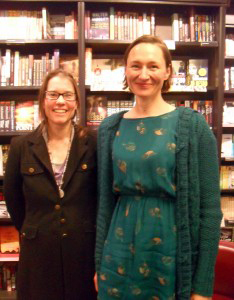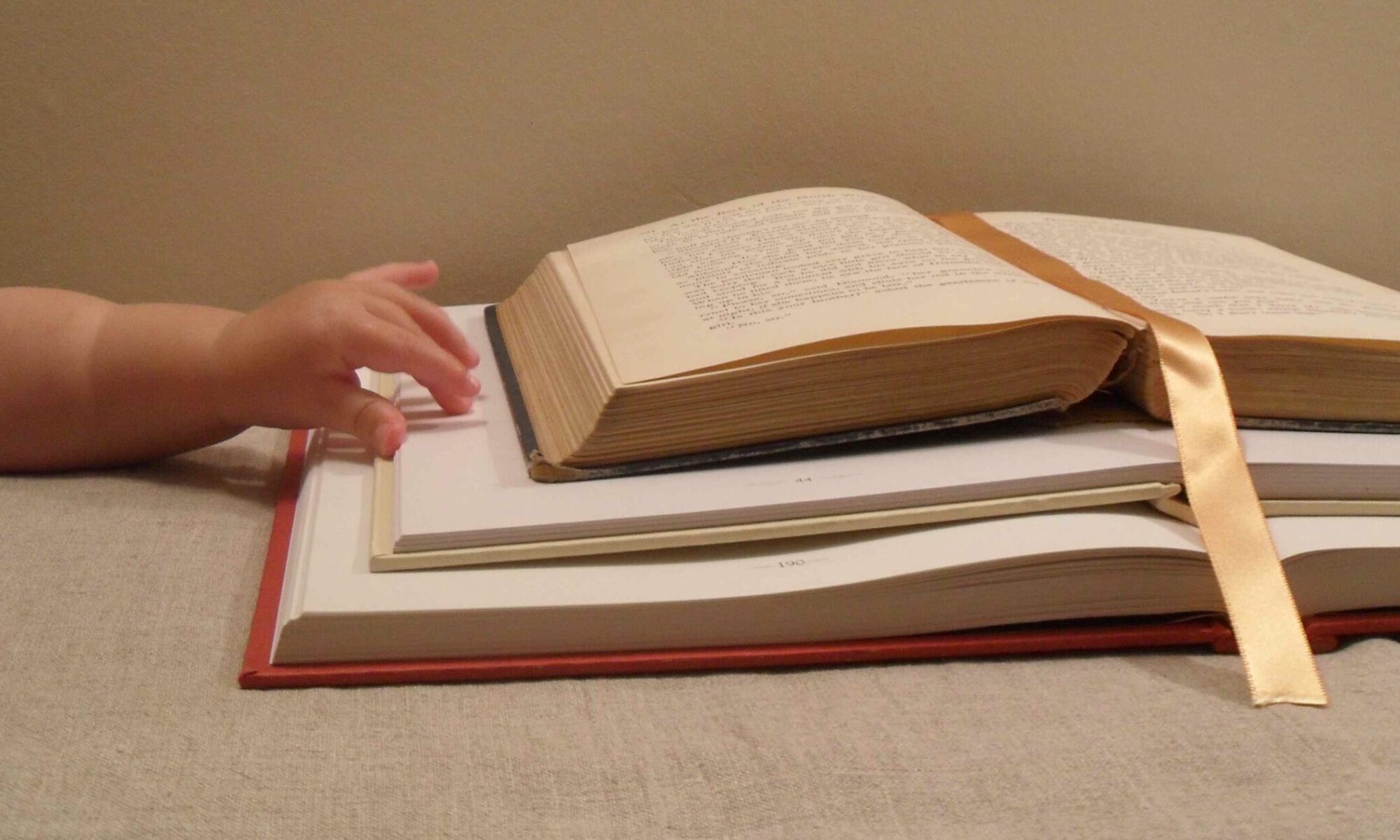Back in May 2013 I spent a lovely evening at Waterstones in Nottingham listening to Alison Moore read from her new book The Pre-War House and Other Stories. I was enchanted by the way Alison spoke – quietly, but passionately – about where the ideas for her stories originate and the actual process of writing and editing. It was also inspiring to discover that she wrote her Man Booker Prize shortlisted novel The Lighthouse whilst caring for her baby son. This was yet another wonderful example of creativity and motherhood in action! So I was delighted when Alison agreed to the following interview. With many thanks again to Alison for taking the time to answer my questions.
***

Alison Moore is the author of The Lighthouse, shortlisted for the Man Booker Prize 2012 and winner of the McKitterick Prize 2013, and The Pre-War House and Other Stories, nominated for the Frank O’Connor International Short Story Award 2013. Born in Manchester in 1971, Alison Moore lives in a village near Nottingham with her husband Dan and son Arthur.
She is a member of Nottingham Writers’ Studio and an honorary lecturer in the School of English at Nottingham University.
1. You began to write at a young age. Were you also passionate about other creative outlets?
I did some drama and youth theatre in my teens, which was fun and taught me a lot, but writing’s always been the main creative area for me.
2. Have you nearly always had some sort of writing project on the go, or have there been some periods in your life which weren’t as productive?
It was very sporadic when I was younger, although I’ve always tended to jot things down. Even when I was in my thirties, before having my son, I’d be working full-time and doing voluntary work and evening classes and not necessarily writing until a story came along and needed writing.
3. You must inevitably have had to deal with rejections of your work at various times. In an earlier interview on this blog, Cathy Bryant said to ‘Expect rejections, and throw a party when you’ve had a 100.’ Did you ever come close to throwing a party?!
I’ve had a whole bunch of stories creeping back home with their tails between their legs. I’m not sure they’d be in the mood for a welcome-home party but you do just have to get on with it. If you’re getting rejections it means you’re writing and sending work out so that’s a good starting place. Hopefully enough will find a home to keep you going, and the ones that come back you have to look at with a critical eye.
4. As I understand your Booker shortlisted novel The Lighthouse was written when your son was very little. How did you manage to fit in writing whilst caring for a baby?
I started writing The Lighthouse when my son was about six months old, but it only worked because I didn’t really do both things at once. I only wrote when he was asleep – sometimes typing one handed on my laptop while he was napping on me after a feed – or when he was out with his dad or his grandma. So it was a bit ad hoc but it got done and I thoroughly enjoyed it!
5. Can you think of some really positive things about fitting in writing with everyday motherly work (or household chores!)?
Having got into the routine of writing every day, the story was always in my head. I wasn’t consciously thinking about it while I was playing with my son or talking to him while I emptied the dishwasher, but in downtimes it was all there ready to go – I’d get a bit of story or the solution to a problem when I was in the shower or sitting in the dark feeding him at night.
6. Would you say that motherhood has enhanced your creativity or simply changed it in some way?
What it did is put a stop to the routine I was in where I did a whole lot of things in my free time but none of them was writing every day, and I started again, so even though I had a lot less free time after having a baby, what I did have I used for writing.
7. In some of your writing the absent mother is one of the most haunting characters. Can you tell us more about that?
The majority of my stories – and all those in my collection – have been written since losing my mother, so that’s presumably where this recurrently absent figure comes from but it’s quite a shock for me to see the stories collected and to realise just how often the mother, for all sorts of reasons, just isn’t there.
8. What are you working on right now and when’s your next author event?
I’ve been working on my second novel, which is about ready to be delivered up for inspection. My editor Nicholas Royle and my husband Dan will be the first to read it.
On Saturday 28 September I’m doing an event at Marlborough Literature Festival in relation to receiving this year’s McKitterick Prize for The Lighthouse, and on Sunday 29 September I’ll be at the short story festival Small Wonder with Brian Kimberling. www.alison-moore.com/events
9. Do you consider yourself a ‘full-time writer’ now that your son is at school?
I do. His school is a few minutes’ walk away so after taking him there I have six hours before going to pick him up, so if I get a bit done in the evening too I’m writing or doing writing-related work full time now.
10. Is there any one person (or persons) that you consider to be a true inspiration to you?
When I think of being inspired to write, wanting to write, I picture being a child, sitting on the edge of my bed with a book in my hands and more on my shelves, my typewriter on my dressing table. I tend to think every story I’ve ever read must inspire or influence me to some degree.
11. What would you say to someone who doesn’t particularly see themselves as a creative person but who would like to try to make a go of writing?
It might depend on how you think about creativity. Writing doesn’t always feel so creative to me; sometimes it feels like just organising what’s hanging around in my head, but it creates something.
